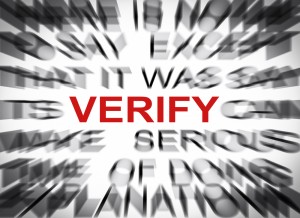
Rule 506(c) of Regulation D of the Securities Act became effective on September 23, 2013. The rule fundamentally changes how private placements are conducted, by allowing issuers to engage in general solicitation and advertising of their private placements if specific requirements are met.
The SEC has confirmed that the Rule 506(c) exemption will not be forgiving for issuers who engage in general solicitation but fail to comply with its requirements.Even one sale to a non-accredited investor in s private placement will prevent the issuer from relying upon the exemption, making it a time bomb for issuers who fail to adopt proper compliance methods for their offerings.
The most significant compliance challenge for issuers is taking reasonable steps to ensure that sales are only to accredited investors.
Rule 506(c) Generally
Both public and private companies can rely upon Rule 506 for their private placement. The exemption is commonly used in going public transactions to raise initial capital and obtain a shareholder base. Rule 506 allows issuers to raise an unlimited amount of capital and there are no limitations on the number of non-accredited investors who can invest. Issuers may only advertise their private placement made pursuant to Rule 506(c) if sales are made only to accredited investors.
Issuers should ensure that prior securities offerings made to non-accredited investors are not integrated with a Rule 506(c) offering or the exemption will could be lost.
This blog post focuses on the questions we have received from our clients concerning verification of accredited investor status.
Rule 506(c) Securities Offerings l Verifying Accredited Investor Status
An issuer generally is required to consider all relevant facts and circumstances to determine what methods of verification of accredited investor status are reasonable. Rule 506(c) requires the issuer to undertake an objective verification process to determine accredited investor status. This should include:
♦ the nature of the purchaser and the type of accredited investor that the purchaser claims to be;
♦ the amount and type of information that the issuer has about the purchaser;
♦ the nature of the offering, such as the manner in which the investor was solicited to participate in the Offering, and the terms of the Offering, such as a minimum investment amount.
In its adopting release to Rule 506(c), the SEC provided a nonexclusive list of verification methods that issuers can use to accredited investor status. These include:
♦ verification based on income, by reviewing copies of any Internal Revenue Service form that reports income, such as Form W-2, Form 1099, Schedule K-1 of Form 1065, and a filed Form 1040 for the two most recent fiscal years and obtaining the investor’s written representation that it has a reasonable expectation of reaching the income level necessary to qualify as an accredited investor during the current year;;
♦ a written confirmation from a registered broker-dealer, an SEC-registered investment adviser, a securities attorney or a certified public accountant stating that such person or entity has taken reasonable steps to verify that the purchaser is an accredited investor within the last three months and has determined that such purchaser is an accredited investor; and
♦ reviewing certain documentation, dated within the prior three months, and obtaining the purchaser’s written representation that all liabilities necessary to make a determination of net worth have been disclosed including:
(i) for assets: bank statements, brokerage statements and other statements of securities holdings, certificates of deposit, tax assessments and appraisal reports issued by independent third parties; and
(ii) for liabilities: a credit report from at least one of the nationwide consumer reporting agencies;
♦ for an accredited investor who purchased prior to the effective date of Rule 506(c) and remains an investor of the issuer at the time of the Rule 506(c) offering conducted by the same issuer, obtaining the purchaser’s written certification that the purchaser is an accredited investor.
For further information about private placements, please contact Brenda Hamilton, Securities Attorney at 101 Plaza Real S, Suite 202 N, Boca Raton, Florida, (561) 416-8956, or visit www.securitieslawyer101.com
This information is provided as a general informational service to clients and friends of Hamilton & Associates Securities Attorneys and should not be construed as, and does not constitute, legal and compliance advice on any specific matter, nor does this message create an attorney-client relationship. For more information concerning the JOBS Act, crowdfunding, emerging growth companies, Rule 144, Form 8K, FINRA Rule 6490, Rule 506 private placement offerings, Regulation A, Rule 504 offerings, SEC reporting requirements, SEC registration on Form S-1 and Form 10, Pink Sheet listing, OTCBB and OTCMarkets disclosure requirements, DTC Chills, Global Locks, reverse mergers, public shells, go public direct transactions and direct public offerings please contact Hamilton & Associates at (561) 416-8956 or by email at info@growpublic101.cominfo@growpublic101.com. Please note that the prior results discussed herein do not guarantee similar outcomes.
Hamilton & Associates | Securities Lawyers
Brenda Hamilton, Securities Attorney
101 Plaza Real South, Suite 202 North
Boca Raton, Florida 33432
Telephone: (561) 416-8956
Facsimile: (561) 416-2855
Brenda Hamilton, Securities Attorney
101 Plaza Real South, Suite 202 North
Boca Raton, Florida 33432
Telephone: (561) 416-8956
Facsimile: (561) 416-2855
No comments:
Post a Comment